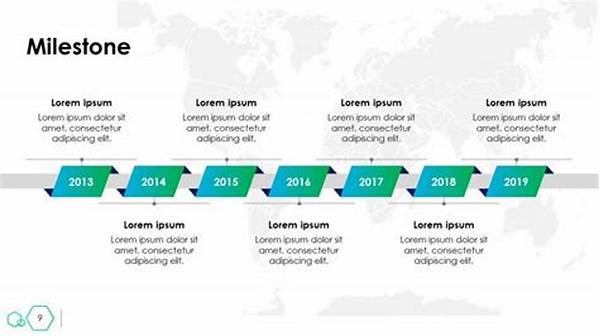In the ever-evolving landscape of education, one question reigns supreme: What truly makes education effective? Imagine a classroom where every student can thrive, where learning isn’t just about cramming facts but nurturing critical thinking, creativity, and passion for lifelong learning. These dreams can be realized through the universal principles for educational effectiveness. They aren’t just buzzwords; they’re the ultimate tools for transforming education systems worldwide and ensuring no student is left behind.
Read Now : “cartoon Biographies Of Famous Leaders”
The Magic of Universal Principles
Let’s dive into the magic behind these universal principles for educational effectiveness. Imagine education as a journey where the destination is not just knowledge but wisdom. To embark on this journey, our guidebook is filled with proven strategies and techniques that empower both educators and students. These principles bridge the gap between mere teaching and effective learning, between rote memorization and inspired understanding. They provide a map where personalized learning paths flourish, fostering a nurturing environment for every learner.
Universal principles don’t operate in isolation. They are a network of interrelated practices that together create a robust educational system. From fostering inclusive environments to integrating technology wisely, each principle plays a role in crafting a successful educational experience. It’s time we embraced these principles, not just in theory, but in practice. Let’s banish outdated methods and adopt these forward-thinking strategies for transformational outcomes in education. The success of future generations depends on this commitment.
These principles advocate for equity and accessibility, ensuring all students, regardless of their backgrounds, have the opportunity to succeed. By becoming advocates of these universal principles, educators and policymakers can empower students to take command of their learning journeys, making education a powerful and positive force in every community. These principles light the path toward a future where education propels us forward, opening doors to endless possibilities and empowering our collective potential.
Core Pillars of Effectiveness
1. Student-Centered Learning: Universal principles for educational effectiveness emphasize putting students’ needs, interests, and learning styles at the forefront, ensuring tailored educational experiences.
2. Equity and Inclusion: These principles advocate for inclusive environments where every student, regardless of their background, has equal access to quality education.
3. Effective Use of Technology: Leveraging technology innovatively is crucial. It enhances learning experiences and provides diverse educational tools that cater to different learning styles.
4. Continuous Professional Development: Teachers and staff are lifelong learners too. Continuous development enhances their skills, aligning with the universal principles for educational effectiveness.
5. Fostering Critical Thinking: Encouraging students to question, analyze, and think creatively is a central component, equipping them with skills for the future.
Bridging Gaps with Universal Principles
The universal principles for educational effectiveness are designed to bridge the gaps often witnessed in traditional educational systems. They address the disparity in learning experiences for affluent versus underprivileged communities, ensuring that quality education is indeed a universal right. By embracing these principles, educators can transform classrooms into incubators of innovation where every student has the potential to excel. They provide the tools and frameworks needed to tailor education to individual learning needs, making the process not just effective but also rewarding.
It’s these principles that align educational goals with real-world needs. They prepare students not just for exams, but for life. The focus is on cultivating critical thinkers, innovators, and leaders. Teachers and policymakers need to work together to integrate these principles into the educational fabric of their schools and communities. With these principles at the core, education evolves from a static model to a dynamic force for personal and societal growth.
Empowering Educators and Learners
For teachers, embracing the universal principles for educational effectiveness means becoming flexible and open to trying new teaching methodologies. It involves a willingness to adapt to diverse cultural and learning needs. The transformation won’t come overnight, but it begins with acceptance and action – understanding that education should not just impart knowledge but should inspire a passion for discovery.
1. Personalized teaching is the future.
2. Inclusivity ensures no student is left behind.
3. Tech integration creates interactive learning.
Read Now : Authentic Stories In Animated Form
4. Lifelong learning for teachers is crucial.
5. Critical thinking over rote memorization.
6. Skills for life preparedness in curriculum.
7. Building a supportive learning environment.
8. Continuous adaptation to new educational paradigms.
9. Collaboration among teachers and students.
10. Establishing a feedback loop for improvement.
The Future of Education is Here
There’s no denying, the universal principles for educational effectiveness place the learner at the center of the educational universe. By adopting these principles, we ensure an educational ecosystem that cultivates inquisitive minds prepared to tackle the challenges of tomorrow. It’s time for educators and institutions to embody this transformative approach. The future of education is not about information overload, but about understanding, application, and innovation.
Moreover, this shift isn’t solely the teacher’s responsibility; it’s a community-wide initiative. Parents, administration, and policymakers should join hands to implement these universal principles. We need schools that don’t just teach the curriculum but inspire minds to explore beyond their horizons. The future is seated in classrooms today – let’s ensure they’re equipped with the tools they need to succeed.
A Call to Action for Educational Transformation
As we rethink education, it’s imperative to acknowledge the role of universal principles for educational effectiveness in this transformation. Picture a world where education inspires, cultivates empathy, and prepares young minds for an unpredictable future with confidence. These principles offer a roadmap. But to realize this vision, concrete steps must be taken today.
The path to reform might be rocky, but it’s necessary for the educational evolution required in our rapidly changing world. Let’s challenge the status quo, discard failing systems, and rally for these universal principles. Education is our collective investment in the future – a future brighter, inclusive, and equipped to handle the vast challenges of tomorrow. It’s on all of us to ensure we’re empowering the next generation with the tools they need to shape the world for the better. Let’s commit to these principles and make educational effectiveness universally effective.



